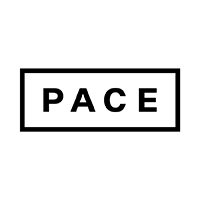Arata Isozaki Named 2019 Pritzker Laureate
By Xuan Wei Yap

ARATA ISOZAKI was announced as the winner of the 2019 Pritzker Architecture Prize on March 5.
Japanese architect Arata Isozaki was named winner of the 2019 Pritzker Architecture Prize on March 5. As the 46th Pritzker laureate, Isozaki will be presented with the USD 100,000 award at a ceremony in France's Palace of Versailles this May, and give a lecture in Paris. He is the eighth awardee to hail from Japan.
Born in the island town of Oita in 1931, Isozaki witnessed the destruction wrought on Japanese homes during World War II, an experience he later cited as one of the reasons for his interest in architecture. He graduated with a degree in architecture from the University of Tokyo in 1954 and established his own practice, Arata Isozaki & Associates, in 1963. He has over 100 built works to his name, garnering international acclaim for designing a number of cultural institutions in Japan and abroad, including the Gunma Prefectural Museum of Modern Art (1974); the Downtown campus of the Museum of Contemporary Art, Los Angeles (1986), his first international commission; and the CAFA (China Central Academy of Fine Arts) Art Museum in Beijing (2008). In 2013, Isozaki collaborated with London-based sculptor Anish Kapoor to create the Ark Nova, an inflatable mobile concert hall, which toured regions across Japan that had been affected by the 2011 Great East Japan Earthquake and tsunami. Isozaki’s work has also been shown widely at art institutions, with midcareer surveys staged at the Museum of Contemporary Art, Los Angeles in 1991 and New York's Brooklyn Museum in 1993. Isozaki was awarded the Royal Institute of British Architects’ Royal Gold Medal in 1986.
The prestigious, annual Pritzker Prize was established by the Chicago-based Hyatt Foundation in 1979 and is considered one of the highest accolades in architecture. Previous awardees include Zaha Hadid, the first female prizewinner (2004); Frank Gehry (1989); Rem Koolhaas (2000); as well as Isozaki’s mentor Kenzo Tange (1987).
Xuan Wei Yap is ArtAsiaPacific’s editorial intern.
To read more of ArtAsiaPacific’s articles, visit our Digital Library.






